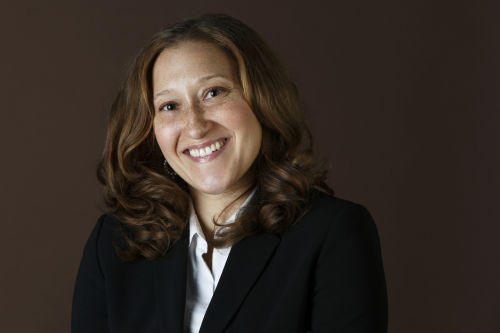Time for our 50-year checkup
July 29, 2014
Lockport firefighter leaves community with so much
July 29, 2014A lawsuit against state officials alleging that Terrebonne Parish’s system of electing judges violates the federal Voting Rights Act is likely to drag through the courts for the next two years, an examination of case documents reveals.
The plaintiffs scored a victory of sorts last week, however, when the judge hearing the case refused to dismiss Secretary of State Tom Schedler as a defendant.
The suit names Schedler, along with Gov. Bobby Jindal and Attorney General Buddy Caldwell.
It was brought by the Terrebonne Parish branch of the NAACP, following years of unsuccessful attempts to create what has been referred to as a “minority judgeship” in the parish.
Other plaintiffs are NAACP members Lionel Myers, the Rev. Vincent Fusilier Sr., Wendell Desmond Shelby Jr. and Daniel Turner.
At-large voting – electing each of Terrebonne’s five judges parish-wide rather than by establishing two or more districts, with one drawn along lines comporting to racial distribution – violates the act, defendants claim, because it dilutes black votes.
Black voters, the suit claims, are unable to be effectively represented by voting as a block for a candidate of their choice. Similar suits have been brought with success in Alabama and other jurisdictions.
The voting scheme, the suit alleges, “was enacted or maintained with a discriminatory purpose …violating the 14th and 15th Amendment of the U.S. Constitution.”
The plaintiffs allege that as a result no black candidate has ever been elected to the judiciary in its 191 years of existence “even though Terrebonne’s black voters constitute a cohesive voting bloc that overwhelmingly votes for black candidates” in other type of elections.
The suit seeks an injunction against the named defendants barring them, their successors or agents from “enforcing, implementing, or conducting” any future parish judicial elections on an at-large basis.
Schedler’s attorneys argued that as Secretary of State his duties are “primarily ministerial and concerned with the mechanics of conducting elections and therefore, he is without the power to enforce, defend, or change the laws governing the voting schemes in the state.”
Any injury suffered by the plaintiffs, the Schedler argument states, is “neither traceable to his conduct nor redressable by any correction of his conduct.” Schedler also raised other, more technical objections.
Schedler’s role as chief election officer of the state, attorneys for the NAACP countered, has him overseeing an allegedly discriminatory voting scheme, and that as such a suit against him is proper.
U.S. District Court Judge James Brady ruled that, for now, the NAACP has demonstrated that a claim against Schedler bears sufficient validity to be heard, without commenting on the overall merits.
Doing so now, Brady wrote, would be premature. Similar arguments were filed by Jindal and Caldwell, but rulings have not been announced yet.
Brady’s schedule for filings in the case extend through 2016, giving validity to the suggestion that there will be no way for it to influence the upcoming judicial election for the replacement of Judge Timothy Ellender, who must leave the bench because of the state’s mandatory retirement law for judges reaching the age of 70.
Attorney Leah Aden of the NAACP Legal Defense and Education Fund – an entity separate from the NAACP – said such cases do not usually result in injunctions aimed at immediate elections.
“The violation has gone on for many years,” she said, explaining that the urgency of the matter is therefore weakened.
Aden said that with costly and time-consuming litigation ahead, it might be wise for the state, through legislation, to change the way judges are elected on its own, rather than wait for a later court ruling that could have the same result anyhow.
A bill creating a separate minority judgeship district was presented by former State Rep. Damon Baldone, D-Houma, but was voted down.
“I feel good about the judge’s ruling, I feel he did the right thing,” said Jerome Boykin, president of the Terrebonne Parish branch of the NAACP. “This cleaery shows that the suit we filed is a legitimate lawsuit.”
Boykin agrees with the contention that local and state officials should consider weighing the possibility of changing the current system.
“You would hope and pray that the people involved would do the right thing,” Boykin said. “The state needs to allow the people of the proposed opportunity district to elect a candidate of their choice.”
Boykin said he is not concerned about the long schedule that would indicate years before a trial of the case.
“We are in this for the long haul,” he said.








